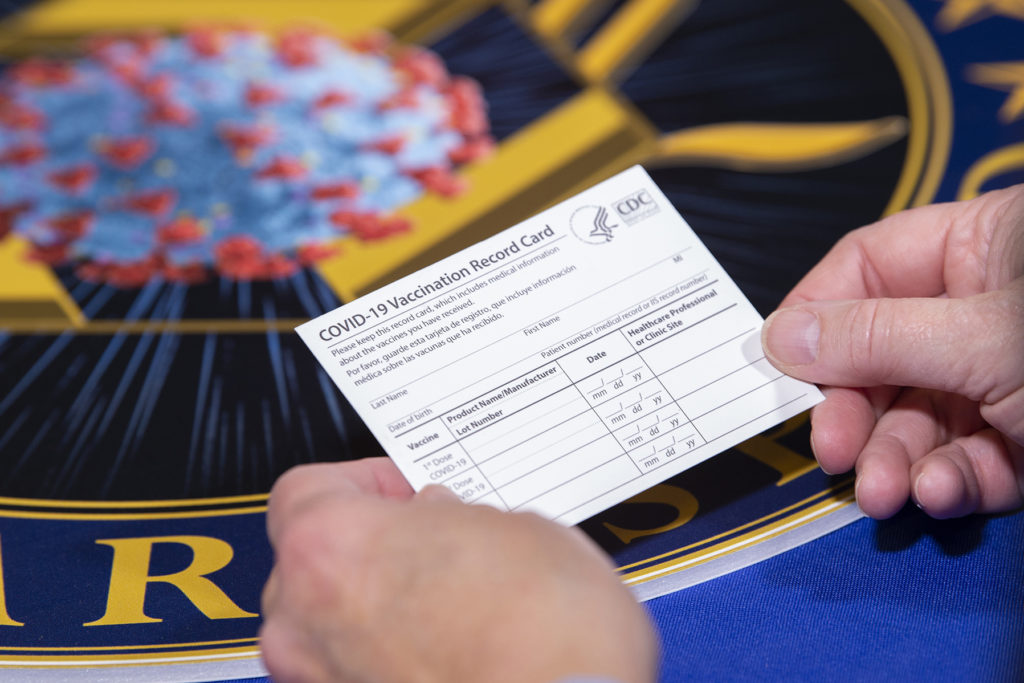
A blank card displayed by the Dept. of Defense at the Operation Warp Speed headquarters.
This article originally appeared in the March 2021 edition of Senior Scope. Article by Seth Thomas.
If you’ve received the COVID-19 vaccine, you may be tempted to share the good news with your friends and family on Facebook. But, as the Better Business Bureau (BBB) warns, no one will be more excited to see your vaccination status than scammers.
When you’re inoculated, you can expect to receive a vaccination card that lists your name, birthday and information about where you were given the shot. With a few extra details, such as your street address, which is readily available online, and your social security number, scammers could attempt to steal your identity.
Beyond the dangers of sharing personal information, sharing your vaccine card will only make it easier for scammers to create phony duplicates.
The BBB pointed to an investigation from the British tabloid The Sun, in which a reporter easily bought fake vaccination cards over eBay. Once eBay was alerted to the scam, the cards were removed from the website. However, scammers soon migrated to the social media platform TikTok to sell counterfeit cards.
The BBB recommends you remove any photos of your vaccine card, if you have posted them already. Additionally, the BBB offered several best practices for using Facebook, including:
- Make sure your privacy settings are as high as possible and delete people on your friends list that you don’t know personally. If you only want to share updates with friends and family, double check your security settings.
- From time to time, there are popular posts on Facebook that prompt users to share personal information, similar to the trend of sharing vaccine cards. For example, some posts prompt you to list the cars you’ve owned, your favorite songs or favorite TV shows. Many of these favorites are used in passwords or in security questions. Avoid posting this information.
Visit the Better Business Bureau online at bbb.org to learn more about social media scams and scams related to COVID-19 and the vaccine.


Recent Comments